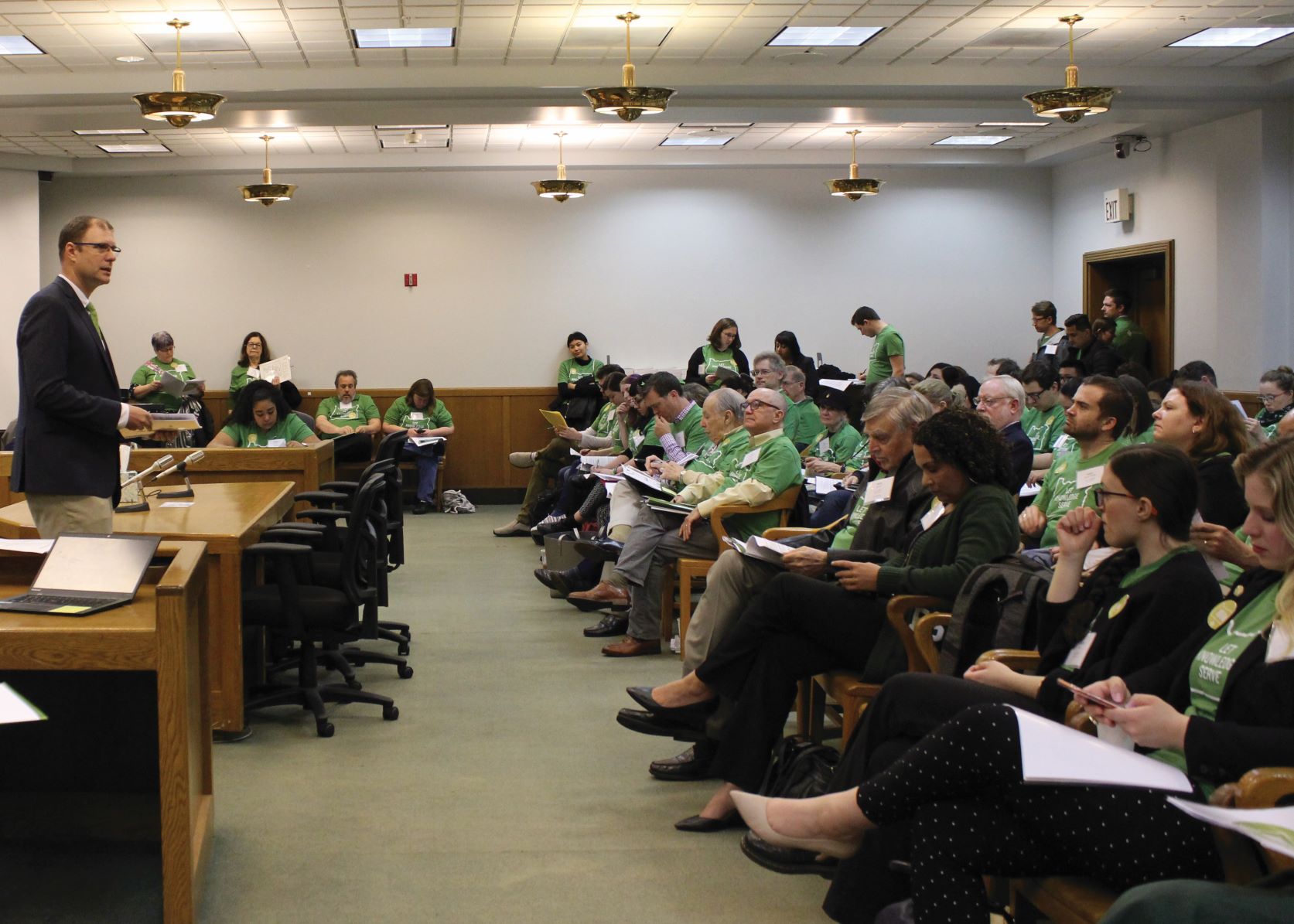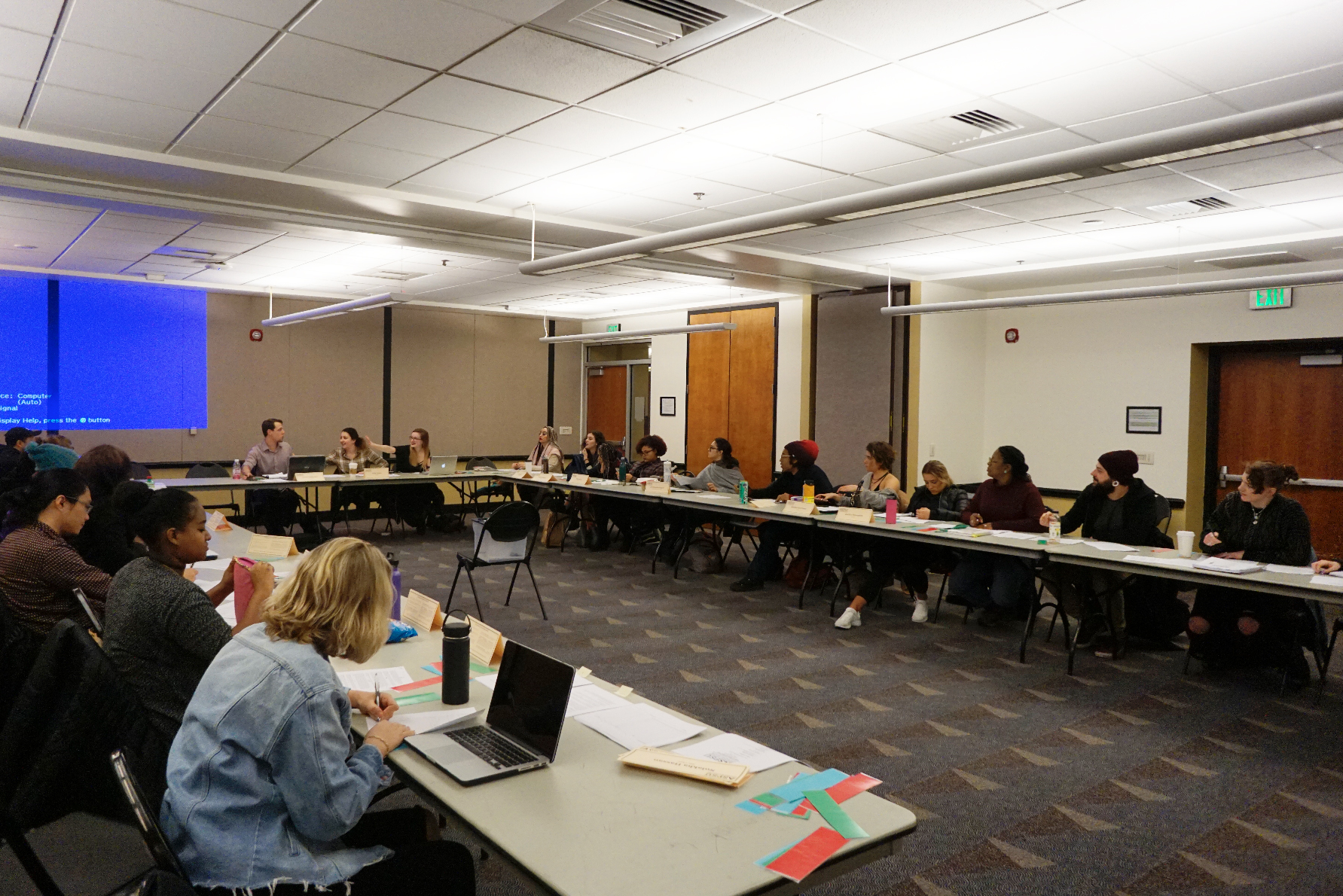Amid Portland State facing a $18 million budget shortfall and a possible tuition increase of 18%, PSU students, faculty and staff gathered on April 16 in Salem to lobby for state funding during the annual PSU Day at the Capitol.
PSU described the Day at the Capitol as a way to let the state legislature know “how important our university community is to Oregon. PSU students cannot afford excessive tuition increases, and [that is] why [state] funding of public higher education is critical to Oregon’s future.”
Kevin Neely, associate vice president of government relations, estimated around 30–40 students participated in PSU Day at the Capitol, similar to last year’s event. He confirmed PSU faculty, staff, alumni and trustees were present at the event.
“The day was a resounding success,” Neely said. ”We are confident that it made a difference with key legislators and demonstrated the challenges faced by our students.”
Neely said PSU students, faculty and staff met with over 20 senators and 30 representatives to advocate for increases in funding and student scholarships. PSU belongs to Senate District 18, represented by Senator Ginny Burdick, D–Ore., who met with students and expressed her pride at PSU belonging to her district on social media.
PSU students also met with Gov. Kate Brown to discuss state funding to keep tuition costs down.
Brown has previously voiced her support for lowering tuition increases. Brown and the Oregon Legislature approved increased state funding for higher education in 2017.
Rebecca Jean Olsen, a staff member for the PSU department of communications, thanked Brown for her support of higher education and for PSU. “We’re going to need more than a $40 millon increase to keep the doors of opportunities open for all,” she said, “but we know you can figure this out so our students don’t have to.”
The Finance and Administration committee will consider options for tuition from 9 a.m. to noon on May 3 in the Academic and Student Recreation Center. The full PSU Board of Trustees will convene to talk about final tuition decisions and funding from the state from 1–4 p.m. on May 13 in the same location.
If Brown and the Legislature approve additional state funding, the recommended tuition increase will also include proposed reductions for the tuition increase.
The proposed reductions are required by H.B. 4141 from the previous year, which includes a clause stating “a plan for how tuition and mandatory enrollment fees will be decreased if the public university receives more money from the state than anticipated.”
H.B. 4141 also requires public universities in Oregon to establish an advisory board to advise the university president regarding tuition and enrollment fees—The Tuition Review Advisory Committee for PSU.
Neely predicts students participating in TRAC will receive PSU’s administrative recommendation for tuition the following week after the event at the Capitol. From there, the memo will be delivered to the president and committee leadership.
Earlier in 2019, the Associated Students of Portland State University caused a stir by announcing they would not participate in lobbying at the Capitol this year despite participating in PSU Day at the Capitol in earlier years.
Camilo Abreu A., ASPSU legislative affairs director and student representative of TRAC, said ASPSU boycotted lobbying with the PSU administration because “legislators have specifically told us they are disappointed in how the administration is handling administration and finance at PSU.”
Abreu A. also said ASPSU has been in “constant contact” with legislators and have been working to introduce a bill to freeze tuition.
“We firmly believe the state should not only increase funding for PSU but should replace tuition and ‘private grants’ as part of our funding model,” Abreu A. said. “The PSU administration does not support our position.”
On ASPSU attendance, Neely said “we were disappointed that ASPSU did not participate. The day would have been more impactful with their attendance.”
ASPSU President Luis Balderas-Villagrana said when students return from the Capitol every year, they are still faced with increased tuition.
“Our goal is to send a clear message to the Legislature—funding for higher education should not be used as a pawn for political gain,” Balderas-Villagrana said.






